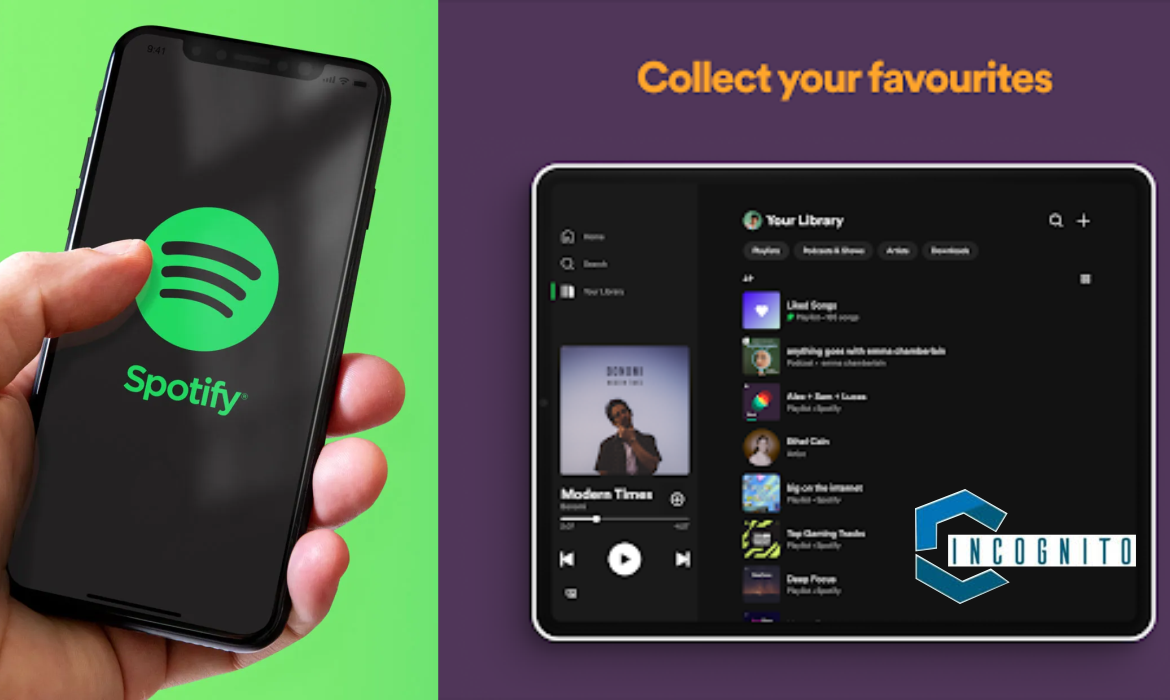
Who creates all the millions of songs and podcasts that you listen to using Spotify when you are technically listening to your favorite artist, you don’t consider who owns Spotify that you are using. In a generation where a person can produce millions of songs in any given time and place, that just shows how fantastic it is. It is the most popular in the time of digital music because it has changed how we listen to music and developed an appreciation for it.
Let’s understand more.
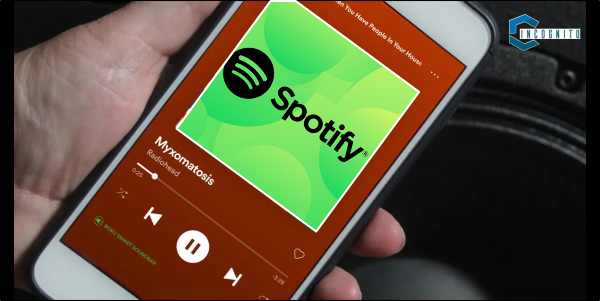
The Masterminds of Spotify
The Masterminds of Spotify 🧠
In 2006, two Swedish businessmen Daniel Ek and Martin Lorentzon started the story because they were upset about people downloading music illegally and initially they were unsure about what to do but they wanted to do something. People who like music were downloading illegally because it was easy, but this was hurting the artists who were not getting paid properly. Ek and Lorentzon had an idea to make it easy and legal for people to listen to music on the internet.
They wanted to create a place where artists’ rights were respected and music fans could listen to music easily. This dream came true when Spotify was created where Daniel and Lorentzon are the co-founders of Spotify and both own a big part of the company. Ek is now the Chairman and CEO, and Lorentzon is the company’s treasurer. Their love for music and willingness to try new things started the music streaming company we have now.
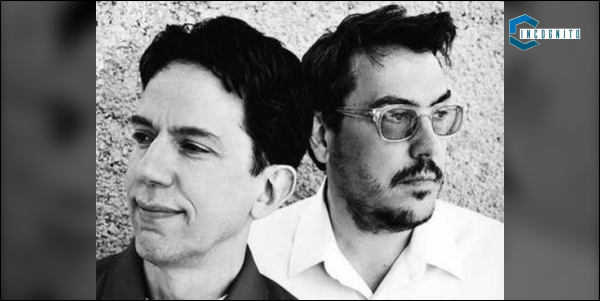
The Institutional Shareholders (Giants of Spotify)
The Institutional Shareholders (Giants of Spotify) 🥁
The people who started Spotify don’t own the whole company. A strong group called institutional shareholders owns a big part of the company.
Investment Firms:
They are business institutions that pool monies from individuals and other groups of people with an aim of using the money to buy stakes in various capacities such as shares of companies such as Spotify. They are like financial gurus who look at organizations and attempt to earn money for investors. Some of the famous players, including BlackRock, Vanguard, and State Street Global Advisors, manage a sizable amount of money that can belong to a large number of shares in companies like Spotify.
Pension Funds:
Pension refers to money set aside by companies or the government for paying out to clients who are in their retirement years. Some of your grandparents may have been a part of it or may have heard about it. Now, pension fund managers invest in such assets as spices which include Spotify in order to ensure that the person who will receive the funds in the future will have enough.
Mutual Funds (ETFs):
A mutual fund can be defined as a collection of baskets in which several kinds of investors invest their money to buy shares. You place a small amount of money as in this example a sandwich and the fund has different varieties of securities like food items that make a meal. They are close to stocks but like other securities, they are traded in the stock market. Some investment funds invest their money in various companies including Spotify so investors in these funds can minimize their investment risks within the marketplace.
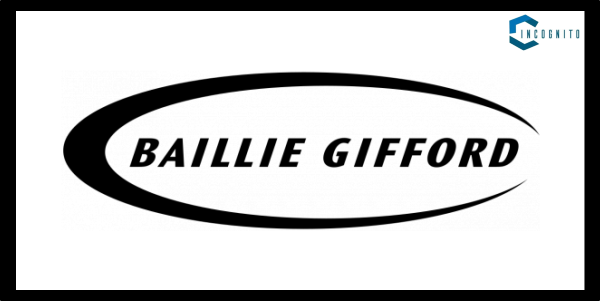
Baillie Gifford & Co.:
The Top Three ⭕
Three big organizations have a lot of control over Spotify’s ownership.
Baillie Gifford & Co.:
Originally from Scotland, Baillie Gifford & Co. is a name in the market that means using a simple strategy to invest money for a long time to get a return in big amounts. Baillie Gifford is different from other places that trade stocks a lot. They believe in the companies they invest in and are willing to wait a long time for them to grow. This matches well with Spotify’s goal of always getting better and coming up with new ideas in the music streaming world. Baillie Gifford has been a big supporter of what Spotify is doing and has been helping them grow and improve.

Morgan Stanley:
Morgan Stanley:
The big investment bank Morgan Stanley now owns a big part of Spotify. This shows they think Spotify could become a big deal in the music business. Morgan Stanley is very good at understanding money and business all around the world, and this might affect their choices about what Spotify does next. Their participation shows that they believe the company can do well in the international music market.

T. Rowe Price Associates Inc.:
T. Rowe Price Associates Inc.:
Rowe Price Associates Inc. is a big American company that manages money for people, gives Spotify even more stability. They strongly believe in Spotify’s future success, which is why they decided to invest a lot in the company. “T” can be written as the letter “T. ” Rowe Price is famous for doing thorough research before investing in companies. They believe in Spotify’s future success.
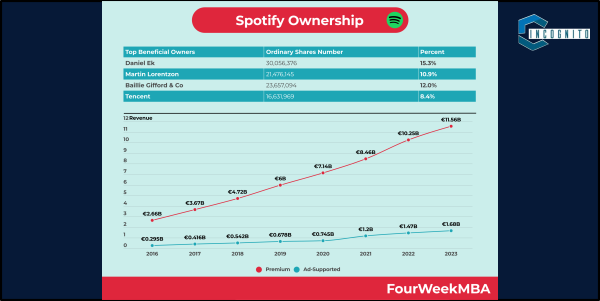
Individual Investors: Stakes of Common People
Individual Investors: Stakes of Common People 🎸
Democratization of Ownership:
Try to imagine yourself owning a small piece of the big music company, Spotify. Even regular people like us can own a part of Spotify, not just the co-founders who have a lot of it. This means more people can own stocks because of the stock market. Companies like Spotify sell part of their ownership on the stock market and when you buy a share, you own a small part of the company and want it to do well.
The Strength (Numbers):
Spotify can be used by anybody in society at any given time and in any given situation. This could be a music lover, a frequent user of Spotify, an English speaker who has optimism about the company’s future, or someone interested in investing in the company. However, individual investors may have a smaller number of shares than large investment firms, for instance. However, when they combine their efforts, they can make a great impact in society.
Think of it like a whole pizza, a really big one. The founders and large shareholders possess the majority of the company while others including employees and consumers also have an ownership stake, albeit a small one. Nobody has a lot, but when everyone is combined, they are a significant part of Spotify. Spotify has attracted many users and people believe it will continue to expand in the future. This is a good sign as well.
Ways to join the Spotify Symphony:
- Individual people can own part of Spotify in different ways. Some people might want to buy shares of a company by going through a brokerage account directly and thus, this means you can choose how many shares you want to invest in to create a strategy that’s just right for you.
- Some people put their money in mutual funds or ETFs including Spotify shares along with other investments and this decision helps you diversify out your money so it’s not all dependent on how well Spotify is doing. Professionals manage mutual funds and ETFs, and they make investment decisions for you.
- No matter how they do it, regular people who invest in Spotify are really important for those who own the company. Their involvement shows that people trust the platform and give it important financial support.
Sharing success stories with everyone benefits:
- This means that both Spotify and regular people who invest in the company can benefit from the way ownership is spread out. Investors can make money if the company does well. If the stock price of spotify goes up, the value of its shares also rises. Also, if you are aware, some companies like Spotify give their shareholders a share of the company’s profits called dividends.
- Alternatively, Spotify is getting more support from people and has the potential to receive more money in the future. When regular people invest in the platform, it shows that they trust it. This can make the platform more appealing to companies and other investors. This wider ownership pattern can also help create a feeling of togetherness and shared achievements between the company and its customers.
- When you listen to your favorite Spotify playlist, you should keep in mind that you have an opportunity to own the platform partially by investing in the stock market and thus you will also be a part of Spotify’s journey and its success.
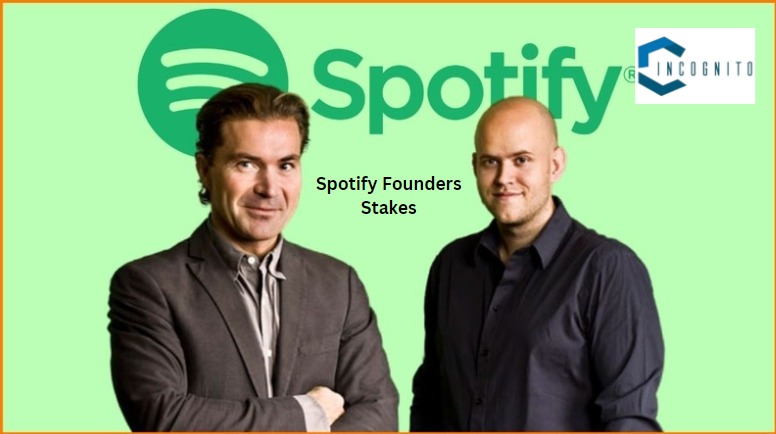
Spotify Founders Stakes
Spotify Founders Stakes 🎵
Spotify Institutional shareholders are powerful stakeholders in Spotify but we cannot rule out the founders of the company namely Daniel Ek and Martin Lorentzon. It is the core of the company and the most important element in it. They both are co-owners of Spotify and together they own 25% of the Company. This may not look much but they are quite influential with it. This is especially the case when it concerns strategic management decisions regarding the future of Spotify.
This is why Ek and Lorentzon’s ownership is important, even though it may seem small compared to big institutions.
Voting Rights:
Voting rights mean that owning something also gives you the power to vote. It’s not just about making money whereas it’s about having a say in how things are run. People who started a company have extra voting power, which means their opinions count more than others on important decisions. This means that Ek and Lorentzon have a lot of influence over where Spotify is going, even though they don’t own the majority of the company.
Vision and Control:
Ek and Lorentzon not only made Spotify, they also had a vision for it. They know the company’s main beliefs and its goals for the future really well. They own 25% of Spotify, so they have a lot of say in important decisions that affect what Spotify does. They can lead the company in a smart way, making sure it continues to fulfill its main goal of making music more accessible.
The Power of Passion:
Passion is what drives founders, while money motivates institutional shareholders. Ek and Lorentzon are very committed to making Spotify successful, and it’s not just about making money. Their ongoing participation helps the company remember its main values instead of just focusing on making money. This strong feeling can lead to new and creative ideas, and a strong dedication to making things better for the people using them, which is really important for being successful in the long run.
To Sum Up:
Spotify is owned by the people who started it and by big investors who think it will do well. As a public company, anyone can buy shares and become part owner of this big music streaming company. Next time you listen to any kind of new music on Spotify, you’ll understand more automatically about how the platform works.
That’s it for now. 🙂
Thanks for reading.





